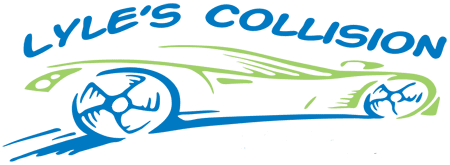Consumer’s Guide to Collision Repairs
No vehicle owner expects to be involved in an accident. But, at some point, you may be faced with damage to your vehicle as a result of a collision. Vehicle repairs can be handled better by an informed consumer.
The Michigan Department of State wants you to know your rights before you authorize repairs to your vehicle. The department’s Bureau of Information Security, Regulatory Monitoring Division regulates automobile dealers, repair shops and mechanics, informs consumers of their rights and investigates related complaints.
This information describes what is involved when collision repairs are needed and details your rights as a consumer.
Vehicle design
Most vehicles manufactured since 1980 are of a design known as unitized body (commonly known as unibody) construction. This design is particularly good at absorbing collision impacts and minimizing injury to vehicle occupants. The ability to absorb collision impact is accomplished by creating “crush zones” in the vehicle that absorb and redirect the impact energy to other areas of the vehicle outside the passenger compartment.
Unitized body construction relies on a number of lightweight, high strength steel panels and parts, properly welded together, to provide structural strength. Due to the energy absorbing nature of the design, even relatively minor appearing accidents can result in damage that may affect the structural integrity of the vehicle.
Proper training and equipment are necessary for the repair facility you choose to correctly diagnose and repair your vehicle. A poorly repaired vehicle may be unsafe and can cost you money.
Your right to choose
You are entitled to choose where your vehicle will be repaired. Your insurance company may provide you with a list of possible repair facilities. The repair facility you choose should meet the requirements listed below.
What you should look for
Under Michigan law, repair facilities that perform collision repairs are required to be registered (licensed) with the Department of State. The registration and a consumer information sign must be posted in a prominent location within the facility.
The consumer information sign advises you of your right to a written estimate from the facility before repairs begin and to a final invoice upon completion of repairs. Further, mechanics who repair collision-damaged unitized body vehicles are required by law to be certified in the category of Unitized Body Structural Repair. The mechanic’s
certificate must be posted in a conspicuous location.
Look for the facility’s registration, the mechanic’s certificate and the information sign. If you do not see them, ask the service manager or owner about them. If they cannot be shown to you, take your vehicle elsewhere. Only do business with a repair facility that is registered and can demonstrate that it has properly trained, certified mechanics who can work on your vehicle.
Repairs to be performed
When you receive a written estimate for the work that will be done, be sure you understand the extent of the repairs that will be performed and the type of parts that will be used. The abbreviation “LKQ” stands for “Like Kind and Quality” and is another way of saying the part is used and not new. Never allow a repair facility to install used safety items, such as a supplemental inflatable restraint system (an air bag).
Michigan law requires a collision repair facility to inform you in writing if the replacement parts used to repair your vehicle are not OEM (Original Equipment Manufacturer, the company that manufactured your vehicle). Parts not produced by the vehicle manufacturer may be of a lesser quality and, if used, may void the manufacturer’s warranty. Before authorizing collision repairs, make sure you inform the repair facility and your insurance company if you only want the repair completed with OEM parts.
Will there be a warranty?
Before allowing the repair facility to begin repairs, find out if the facility provides a warranty on its work. A repair facility is not required to provide a warranty. If a warranty is provided, the terms and any exclusions must be in writing. If you are told the repair to your vehicle will be warranted, make sure you receive a written copy of the warranty.
Special deals or discounts
Be wary of repair facilities that offer to waive your insurance deductible or to do more work for no extra charge. Needed repairs could be short-cut to offset the added expense the repair facility will incur. Since the structural integrity of your unitized body vehicle is extremely dependent upon proper repairs being performed, never agree to something that could affect your safety and the safety of your passengers.
Paint repairs
Just as the Regulatory Monitoring Division investigates complaints involving collision repairs, it also investigates complaints involving paint work done with collision repairs. If problems involving other types of paint work cannot be resolved with the repair facility, relief may be available through the Office of the Attorney General or through Small Claims Court.
In the event of an accident
None of us want to be in an accident. If we are, it is important that key facts be obtained for later use. The items below may help you obtain needed information. In the event of an accident, write down the following information.
- Date and time of accident
- Name and addresses of other involved
- Names and addresses of witnesses
- Name of other party’s insurance company and agent
- Other party’s policy number
- Investigating police department
- Police report number
Information on this page was taken directly from the Secretary of State’s page on Consumers Guide to Collision Repairs. For more questions and concerns relating to your rights, please visit this website.
